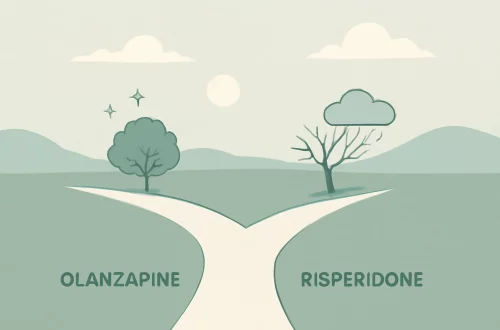
Understanding Rabbit Bit: Causes, Symptoms, and Solutions
Understanding the complexities of rabbit behavior and health can be a daunting task for pet owners and rabbit enthusiasts alike. These charming creatures, known for their playful antics and gentle nature, can sometimes exhibit concerning signs that may indicate underlying health issues. One such issue that has garnered attention is the phenomenon known as “rabbit bloat,” a condition that can be alarming for both the rabbit and its caretaker.
Bloat in rabbits refers to the abnormal accumulation of gas in the digestive system, which can lead to severe discomfort and distress. Understanding the intricacies of this condition is crucial for anyone who cares for rabbits, as it can be a sign of more significant health problems. The rabbit’s unique digestive system requires specific care and attention, and recognizing the signs of bloat early can be the difference between a quick recovery and a more serious situation.
As we delve deeper into the aspects of rabbit bloat, it is essential to consider the various factors that contribute to its development, the symptoms that may arise, and the best approaches to managing and preventing this distressing condition. By fostering a better understanding, rabbit owners can ensure that their pets remain healthy and happy.
Causes of Rabbit Bloat
Rabbit bloat can occur due to several interrelated factors that affect the delicate balance of their digestive systems. One of the most common causes is an improper diet. Rabbits require a high-fiber diet primarily composed of hay, fresh vegetables, and a limited amount of pellets. When their diet lacks essential fiber, it can lead to digestive stasis, where the gastrointestinal tract slows down or stops functioning effectively. This stasis can result in gas buildup, leading to bloat.
Another contributing factor is rapid changes in diet. Introducing new foods too quickly can upset a rabbit’s digestive system. For instance, if a rabbit is suddenly given a variety of treats or new vegetables without a gradual transition, it might struggle to process these unfamiliar foods, resulting in gas accumulation.
In addition to dietary issues, stress plays a significant role in the development of bloat. Rabbits are sensitive creatures, and changes in their environment—such as moving to a new home, the introduction of new pets, or loud noises—can induce stress that affects their digestive health. Stress can lead to reduced food intake and digestive motility, both of which contribute to bloat.
Furthermore, underlying health conditions can also predispose rabbits to bloat. Conditions such as dental disease, which affects their ability to chew and digest food properly, can lead to gastrointestinal issues. Similarly, infections or other illnesses may disrupt normal gut function, resulting in the accumulation of gas.
Understanding these causes is vital for rabbit owners aiming to prevent bloat. By ensuring a proper diet, minimizing stress, and monitoring for any health issues, caretakers can significantly reduce the risk of this troubling condition.
Symptoms to Watch For
Recognizing the symptoms of rabbit bloat early can be critical in ensuring prompt treatment and recovery. One of the most noticeable signs of bloat is a change in the rabbit’s behavior. A normally active and social rabbit may become lethargic or withdrawn. They may also show signs of discomfort, such as grinding their teeth, which indicates pain or stress.
Physical signs of bloat can include a visibly swollen abdomen. The rabbit’s belly may appear larger than usual, and it may feel hard or tense when touched. Additionally, affected rabbits may exhibit changes in their eating and drinking habits. They might refuse food and water, which can lead to further complications if not addressed quickly.
Another symptom to be aware of is changes in the frequency and consistency of droppings. A rabbit experiencing bloat may produce fewer droppings, or the droppings may become small and hard, indicating that the digestive system is not functioning correctly.
Furthermore, rabbits may also exhibit abnormal postures when experiencing bloat. They might sit hunched over or adopt a position that seems to relieve their discomfort. In severe cases, rabbits may show signs of respiratory distress due to pressure on their diaphragm from the bloated abdomen.
If you notice these symptoms in your rabbit, it is crucial to seek veterinary attention promptly. Early intervention can be vital in addressing the underlying causes of bloat and preventing more severe health issues.
Solutions and Treatments
When it comes to treating rabbit bloat, the first step is to consult with a veterinarian, as they can provide a thorough examination and appropriate treatment options based on the severity of the condition. Treatment typically involves addressing the underlying cause of the bloat, which may include dietary changes, medication, or even surgical intervention in severe cases.
One of the primary treatments for mild cases of bloat is to adjust the rabbit’s diet. Introducing more high-quality hay can help improve digestion and encourage normal gut motility. Fresh vegetables can also be included gradually, ensuring that any new additions are introduced slowly to avoid further digestive upset.
In cases where the rabbit is experiencing pain, a veterinarian may prescribe medications to relieve discomfort and reduce gas buildup. These medications can help relax the gastrointestinal tract and promote regular movement within the digestive system.
If the bloat is severe and the rabbit is unable to pass gas or droppings, the veterinarian may need to perform a procedure to relieve the pressure. This may involve using a needle to release gas or, in some cases, surgery to correct any blockages or other issues.
Preventing bloat is equally important as treatment. To minimize the risk of bloat, rabbit owners should focus on providing a balanced diet rich in fiber, ensuring fresh water is always available, and maintaining a stress-free environment. Regular veterinary check-ups can help catch any potential health issues early on, allowing for timely intervention.
In conclusion, while rabbit bloat can be a serious and distressing condition, understanding its causes, recognizing the symptoms, and knowing the treatment options available can empower rabbit owners to take proactive steps in caring for their pets.
**Disclaimer:** This article is not intended as medical advice. If you suspect your rabbit is experiencing health issues, please consult a qualified veterinarian for professional guidance.




